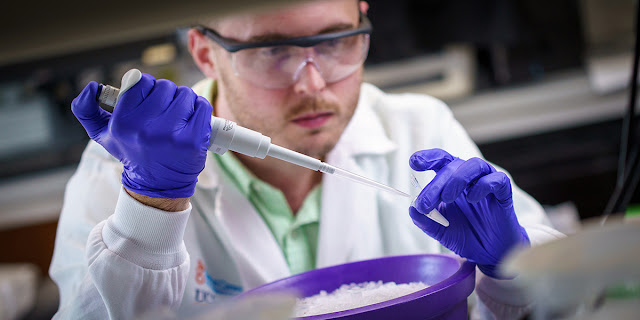The Future of Biomedical Science in India: A Comprehensive Analysis
The Future of Biomedical Science in India: A Comprehensive Analysis
Introduction
Biomedical science, a multidisciplinary field that bridges the gap between biology and medicine, plays a pivotal role in advancing healthcare, diagnostics, and therapeutics. India, with its rich history of traditional medicine and a burgeoning pharmaceutical industry, holds significant promise in the realm of biomedical science. This essay explores the future of biomedical science in India, considering the current landscape, challenges, opportunities, and potential developments in a nation that is poised to be a global biomedical research and innovation hub.
Current Landscape of Biomedical Science in India
Biomedical science in India has come a long way from its early stages of development. Several factors contribute to the current landscape of biomedical research and practice in the country:
Traditional Medicine: India has a deep-rooted tradition of alternative medicine systems, such as Ayurveda, Yoga, Naturopathy, Unani, and Siddha. These systems have coexisted with modern medicine, and many Indians continue to rely on traditional treatments.
Pharmaceutical Industry: India is a major player in the global pharmaceutical industry. The country is known for producing high-quality generic drugs at competitive prices, making healthcare more affordable for many people worldwide.
Research and Development: Indian scientists and institutions have made significant contributions to various fields of biomedical research. Notable areas include biotechnology, genomics, cancer research, and infectious disease studies.
Medical Tourism: India has emerged as a popular destination for medical tourism due to its world-class hospitals, skilled medical professionals, and cost-effective treatments.
Government Initiatives: The Indian government has initiated several programs and policies to promote research and development in the field of biomedical science. Institutions like the Department of Biotechnology (DBT) and the Indian Council of Medical Research (ICMR) play crucial roles in funding and supporting research.
Challenges Facing Biomedical Science in India
Despite the progress made, there are significant challenges that the biomedical science sector in India must address to realize its full potential:
Infrastructure and Resources: Many research institutions and healthcare facilities in India face resource constraints, including funding, equipment, and well-maintained infrastructure. Ensuring access to state-of-the-art resources is crucial for research and innovation.
Regulatory Framework: Regulatory processes for clinical trials, drug approval, and medical device registration can be cumbersome, leading to delays in research and development. Streamlining these processes is essential for expediting innovation.
Human Resources: While India has a large pool of scientific and medical talent, there is a need for more skilled researchers, clinicians, and technicians. Addressing the shortage of well-trained professionals is crucial.
Interdisciplinary Collaboration: Interdisciplinary collaboration is essential for progress in biomedical science. Encouraging cross-disciplinary research and fostering a culture of collaboration can be a challenge.
Ethical Concerns: Ethical issues surrounding clinical trials, organ transplantation, and genetic research require careful consideration and regulation to ensure the responsible practice of biomedical science.
Health Inequalities: India continues to grapple with significant health inequalities, with many citizens lacking access to basic healthcare services. Bridging this gap is a fundamental challenge.
Public Awareness: Raising awareness about the importance of biomedical research and its impact on healthcare is necessary to garner public support and involvement in the field.
Opportunities and Potential Developments
Despite these challenges, the future of biomedical science in India is bright, with numerous opportunities for growth, development, and impact:
Precision Medicine: India is well-positioned to embrace precision medicine, tailoring medical treatment and healthcare strategies to an individual's unique genetic makeup, lifestyle, and environmental factors. Advances in genomics and personalized medicine are on the horizon.
Vaccine Research: With a history of success in vaccine development, India is poised to play a pivotal role in vaccine research, not only for infectious diseases but also for non-communicable diseases.
Biotechnology and Drug Discovery: The country's thriving biotechnology sector is set to expand, fostering drug discovery and development. Bioinformatics, genomics, and pharmacogenomics will be at the forefront of this revolution.
Stem Cell Research: India is already making strides in stem cell research, with the potential for regenerative medicine and novel therapies.
Healthtech and Telemedicine: Digital health solutions and telemedicine are experiencing rapid growth in India, providing accessible healthcare services to remote and underserved populations.
Innovative Medical Devices: The development of cost-effective and innovative medical devices, especially those tailored to the Indian healthcare system, holds great potential.
Global Collaborations: Collaborations with international research institutions, pharmaceutical companies, and organizations can facilitate knowledge exchange and accelerate progress.
Disease Surveillance and Epidemiology: Advancements in disease surveillance, data analytics, and epidemiology can help in early detection and management of disease outbreaks.
Mental Health Research: With an increasing awareness of mental health issues, India is likely to invest more in mental health research and therapies.
Health Education: Enhanced health education programs can promote a culture of preventive healthcare, thereby reducing the burden on the healthcare system.
Conclusion
The future of biomedical science in India is a complex tapestry of challenges, opportunities, and potential developments. As the country strives to become a global biomedical research and innovation hub, addressing infrastructure limitations, streamlining regulatory processes, and investing in human resources are essential steps. The field of biomedical science in India is expected to evolve rapidly, with precision medicine, biotechnology, drug discovery, and innovative medical devices at its forefront.
Moreover, India's rich tradition of Ayurveda and other alternative medicine systems can play a complementary role in healthcare and research. As the nation focuses on scientific advancements and interdisciplinary collaboration, the possibilities for groundbreaking discoveries and improved healthcare are limitless. With the right strategies and investments, India can not only meet its healthcare needs but also contribute significantly to global biomedical science, ultimately improving the health and well-being of people worldwide.










Post a Comment